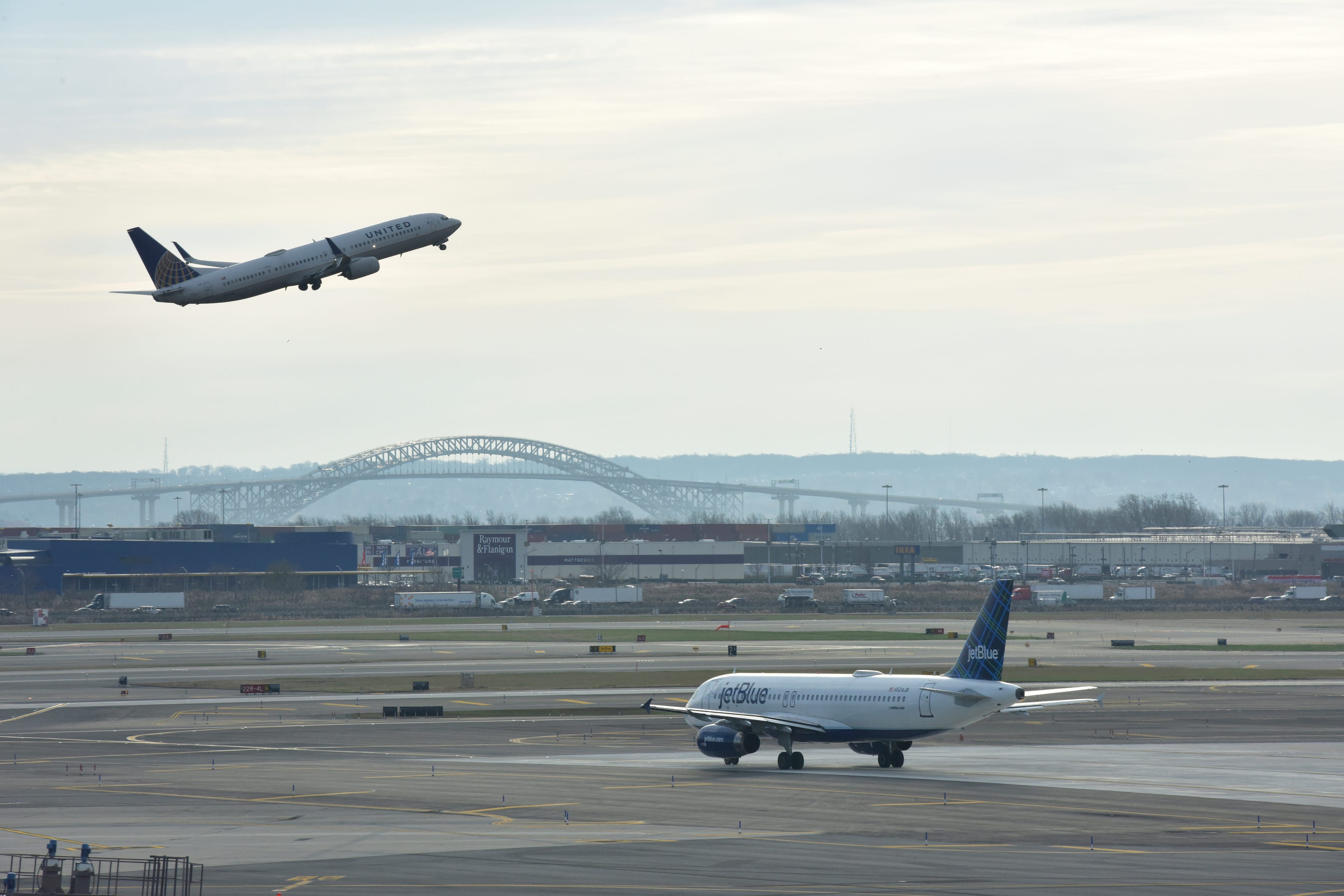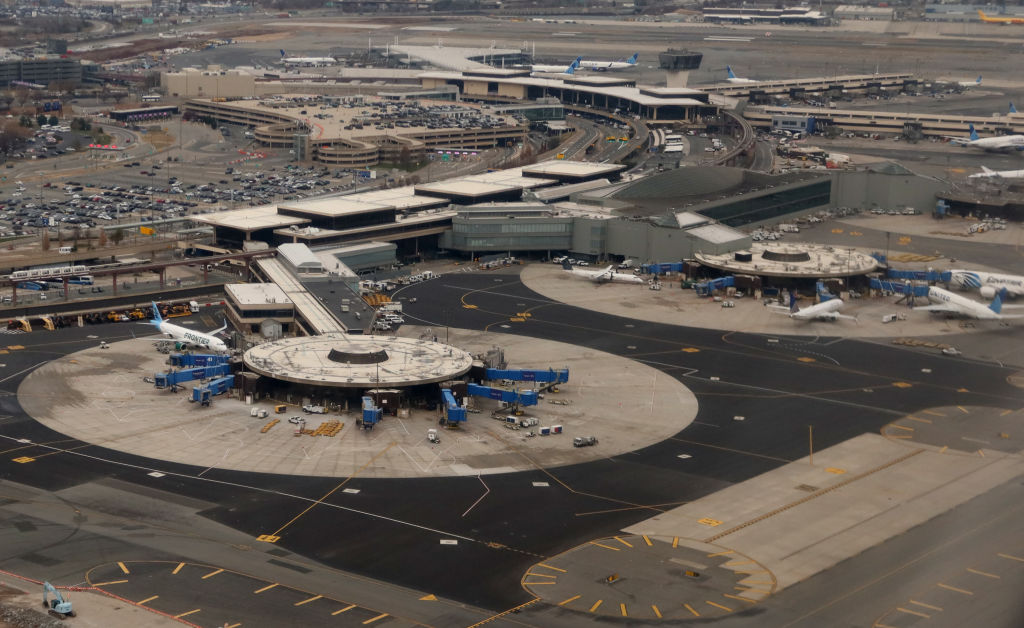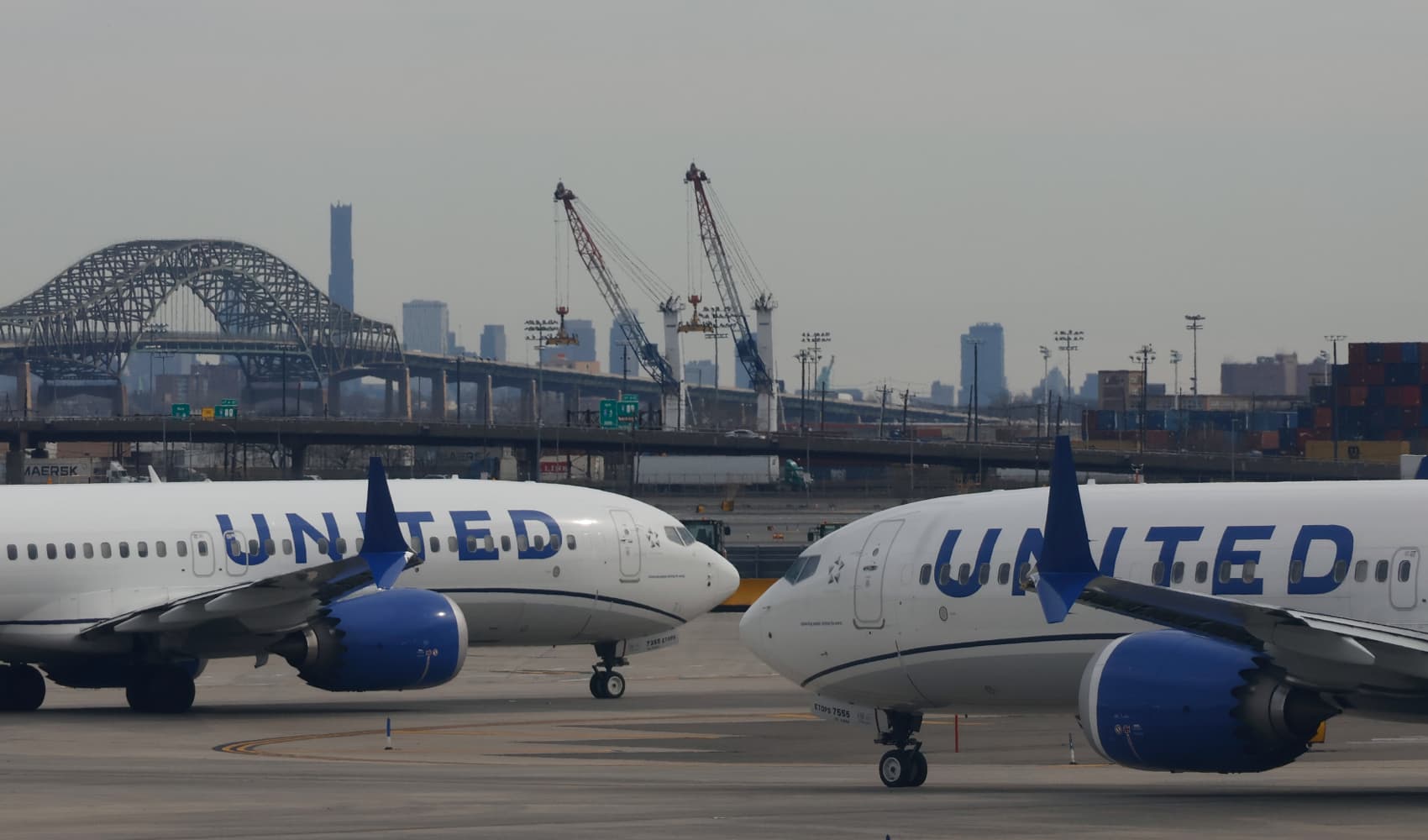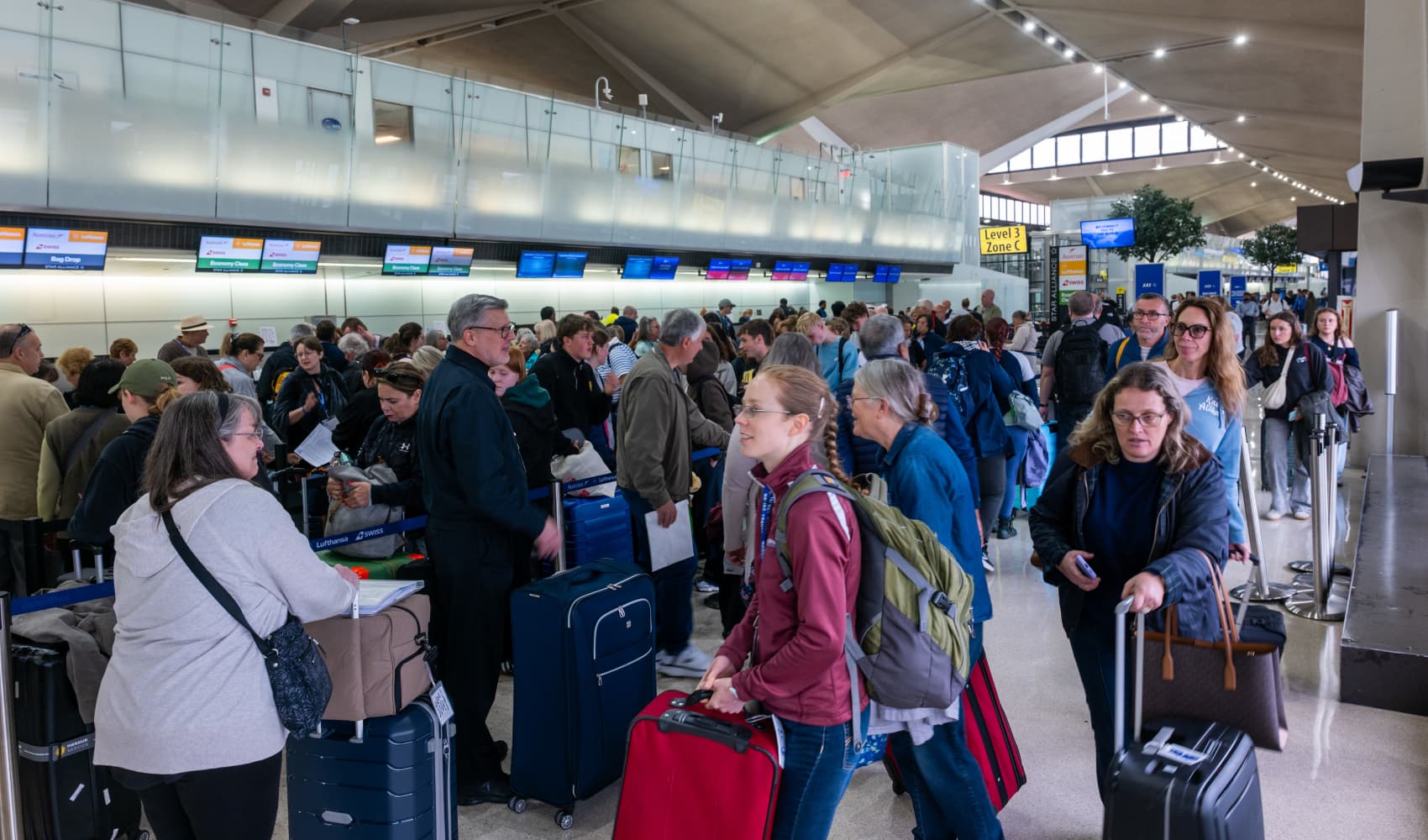Newark Airport Chaos: FAA Outage Causes Major Delays!
Newark Airport Chaos: FAA Outage & Staffing Shortage Ground Flights!
Introduction: When Travel Plans Take a Nosedive
Picture this: you're buzzing with excitement, ready for that long-awaited vacation or crucial business trip. You arrive at Newark Liberty International Airport (EWR), anticipation bubbling inside. Then, BAM! You're hit with the news: significant delays, possibly even a grounded flight. Sadly, this scenario became a reality for many travelers on Monday afternoon due to a perfect storm of issues: an FAA equipment outage and a subsequent staffing shortage. What happened, and what does it mean for your future travel plans? Let's dive in!
FAA Equipment Outage: The Initial Spark
It all started with a technical glitch. The FAA, the folks responsible for managing our skies, reported an equipment issue at their airspace operations center in Philadelphia. This center is critically important, as it oversees the airspace for Newark Airport. Think of it as the air traffic control tower's brain – and when that brain malfunctions, things get messy.
The Ground Stop: No Takeoffs, No Landings
As a result of the equipment malfunction, the FAA issued a ground stop, effectively halting departures and arrivals at Newark Airport. This means no planes could take off and very few could land, creating a ripple effect of delays and cancellations. This initial disruption occurred around 1:30 p.m., throwing travel schedules into disarray.
Brief Resolution, Lingering Effects
The good news? The technical issue was reportedly resolved relatively quickly. The bad news? The disruption didn't end there. Flight activity was expected to resume slowly, but the impact of the initial ground stop lingered, creating significant delays. Like trying to untangle a massive knot, getting air traffic back to normal takes time.
Staffing Shortages: Adding Fuel to the Fire
Just when things seemed to be easing up, another problem emerged: staffing shortages at the same Philadelphia operations center. It's like having a plumber fix a leaky pipe, only to discover the entire house needs rewiring.
The Double Whammy: A Perfect Storm for Delays
The combination of the equipment outage and staffing shortages created a perfect storm of disruption. The FAA acknowledged the staffing issue, further complicating the efforts to restore normal operations. This is the equivalent of a traffic jam caused by both a flat tire AND a detour!
Why Staffing Matters: The Human Element
Even with technology, air traffic control relies heavily on skilled personnel. These controllers manage the complex flow of air traffic, ensuring safety and efficiency. When staffing levels are reduced, the remaining controllers are stretched thin, potentially leading to slower processing times and increased delays.
Airline Impact: United Airlines Feels the Heat
United Airlines, which has a major hub at Newark Airport, bore the brunt of the delays. Being a hub airport, many United flights pass through Newark, making it particularly vulnerable to disruptions.
Diversions and Cancellations: The Airline's Response
To mitigate the impact, United Airlines reportedly diverted some flights to other airports. This is like a driver taking a different route to avoid a road closure – it adds time and inconvenience but can prevent a complete standstill. In addition, cancellations were likely necessary to manage the backlog of flights.
Contact Your Airline: The First Step for Passengers
The official advice from Newark Airport and airlines is clear: contact your airline for flight status updates. Airlines have the most up-to-date information on flight schedules and can provide assistance with rebooking or other travel arrangements. It's always best to be proactive and stay informed.
The Ripple Effect: Beyond Newark Airport
While Newark Airport was the epicenter of the disruption, the delays had a ripple effect on other airports and connecting flights across the country and even internationally. Air travel is interconnected, like a giant web, and disruptions in one area can quickly spread.
Cascading Delays: The Domino Effect
Flights that were supposed to connect through Newark were delayed or canceled, impacting passengers traveling to various destinations. This cascading effect highlights the fragility of the air travel system and the importance of efficient operations.
Lessons Learned: Preparing for Future Disruptions
Incidents like this serve as a reminder of the potential for disruptions in air travel. So, what can we learn, and how can we better prepare for future delays?
Travel Insurance: A Safety Net for the Unexpected
Consider purchasing travel insurance that covers flight delays and cancellations. This can provide financial protection for unexpected expenses, such as hotel stays and meals. It's like having an umbrella on a rainy day – you might not need it, but it's good to have it just in case.
Flexibility is Key: Build in Buffer Time
When planning your trip, build in extra time for potential delays. Don't schedule tight connections, and be prepared to adjust your plans if necessary. Treat unexpected delays as an opportunity to explore new coffee shops or catch up on reading.
Stay Informed: Monitor Flight Status
Use flight tracking apps or websites to monitor your flight status in real-time. This can help you stay ahead of the curve and make informed decisions about your travel plans. Knowledge is power!
Digital Nomad's Perspective: Working Remotely
If you're a digital nomad, consider working remotely from the airport during delays. Take advantage of the Wi-Fi and catch up on emails or projects. Turn a travel setback into a productive opportunity. After all, if you're already set up to work from anywhere, you might as well use that flexibility. If you're not, well, there's no better time to get started and begin to experience that freedom.
The Future of Air Travel: Preventing Delays
What steps can be taken to prevent similar disruptions in the future? Investing in infrastructure upgrades and improving staffing levels are crucial.
Infrastructure Investment: Modernizing Air Traffic Control
Modernizing air traffic control systems and equipment is essential to improving efficiency and reliability. This includes upgrading technology and implementing new procedures to streamline operations. Think of it as upgrading from a horse-drawn carriage to a high-speed train – the goal is to move people and goods more efficiently.
Addressing Staffing Shortages: Recruiting and Training
Addressing staffing shortages requires proactive recruitment and training efforts. Attracting and retaining qualified air traffic controllers is crucial to ensuring safe and efficient air travel. Offering competitive salaries and benefits, along with providing comprehensive training programs, can help attract and retain top talent.
Conclusion: Navigating the Skies with Patience
The Newark Airport delays caused by the FAA equipment outage and staffing shortages serve as a reminder of the complexities and vulnerabilities of air travel. While we can't control every factor that contributes to delays, we can take steps to prepare for the unexpected. By staying informed, being flexible, and having a backup plan, we can navigate the skies with patience and resilience. Remember to contact your airline, monitor your flight status, and consider travel insurance to protect your travel plans. And don't forget, a little flexibility and a good book can go a long way in making those unexpected delays a bit more bearable.
Frequently Asked Questions (FAQs)
Q1: What caused the delays at Newark Airport?
The delays were primarily caused by an FAA equipment outage at their Philadelphia airspace operations center, which oversees Newark Airport's airspace. This was compounded by subsequent staffing shortages at the same facility.
Q2: How long did the ground stop last?
The ground stop was issued around 1:30 p.m. While the technical issue was resolved relatively quickly, the effects of the ground stop and staffing shortages led to significant delays throughout the afternoon and evening.
Q3: What should I do if my flight was affected by the delays?
Contact your airline immediately for flight status updates and assistance with rebooking or other travel arrangements. Monitor your flight status online and consider travel insurance for potential expenses.
Q4: How can I prepare for future travel disruptions?
Build extra time into your travel plans, avoid tight connections, and consider purchasing travel insurance. Stay informed about your flight status and be prepared to adjust your plans if necessary. Download airline apps to monitor and manage your flights.
Q5: What is being done to prevent future delays at Newark Airport?
Efforts are underway to modernize air traffic control systems, address staffing shortages, and improve communication and coordination between the FAA and airlines. These investments are designed to improve efficiency and reliability, ultimately reducing the likelihood of future disruptions.







